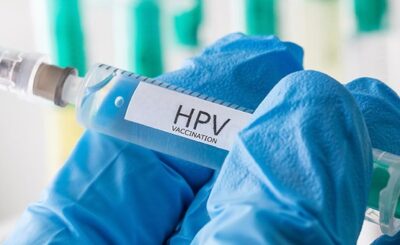Health Matters
Participants in the Framingham Heart Study who achieved higher levels of education tended to age more slowly and went on to live longer lives as compared to those who did not achieve upward educational mobility, according to a new study at Columbia University Mailman School of Public Health and The Robert N. Butler Columbia Aging Center. Upward educational mobility was significantly associated with a slower pace of aging and lower risk of death.
The Framingham Heart Study is an ongoing observational study first initiated in 1948 that currently spans three generations.
The Columbia analysis is the first to connect educational mobility with pace of biological aging and mortality. “We’ve known for a long time that people who have higher levels of education tend to live longer lives. But there are a bunch of challenges in figuring out how that happens and, critically, whether interventions to promote educational attainment will contribute to healthy longevity,” said Daniel Belsky, PhD, associate professor of Epidemiology at Columbia Mailman School and the Aging Centre and senior author of the paper.
To measure pace of aging, the researchers applied an algorithm known as the DunedinPACE epigenetic clock to genomic data collected by the Framingham Heart Study. The latest findings showed that, according to the yardstick of the DunedinPACE epigenetic clock, two years of additional schooling translated to a two- to three percent slower pace of aging. This slowing in the pace of aging corresponds to a roughly 10 percent reduction in risk of mortality in the Framingham Heart Study, according to previous research by Belsky on the association of DunedinPACE with risk of death.
DunedinPACE was developed by the Columbia researchers and colleagues and reported in January 2022. Based on an analysis of chemical tags on the DNA contained in white blood cells, or DNA methylation marks, DunedinPACE is named after the Dunedin Study birth cohort used to develop it. DunedinPACE (stands for Pace of Aging Computed from the Epigenome), is measured from a blood test and functions like a speedometer for the aging process, measuring how fast or slow a person’s body is changing as they grow older.
Biological aging refers to the accumulation of molecular changes that progressively undermine the integrity and resilience capacity of our cells, tissues and organs as we grow older.
The Columbia researchers used data from 14,106 Framingham Heart Study spanning three generations to link children’s educational attainment data with that of their parents. They then used data from a subset of participants who provided blood samples during data collection to calculate the pace of biological aging using the DunedinPACE epigenetic clock. In primary analysis, the researchers tested associations between educational mobility, aging, and mortality in a subset of 3,101 participants for whom educational mobility and pace of aging measures could be calculated.
For 2,437 participants with a sibling, the researchers also tested whether differences in educational attainment between siblings was associated with a difference in the pace of aging.
“A key confound in studies like these is that people with different levels of education tend to come from families with different educational backgrounds and different levels of other resources,” explained Gloria Graf, a PhD candidate in the Department of Epidemiology supervised by Belsky, and first author of the study. “To address these confounds, we focused on educational mobility, how much more (or less) education a person completed relative to their parents, and sibling differences in educational attainment — how much more (or less) education a person completed relative to their siblings. These study designs control for differences between families and allow us to isolate the effects of education.”








